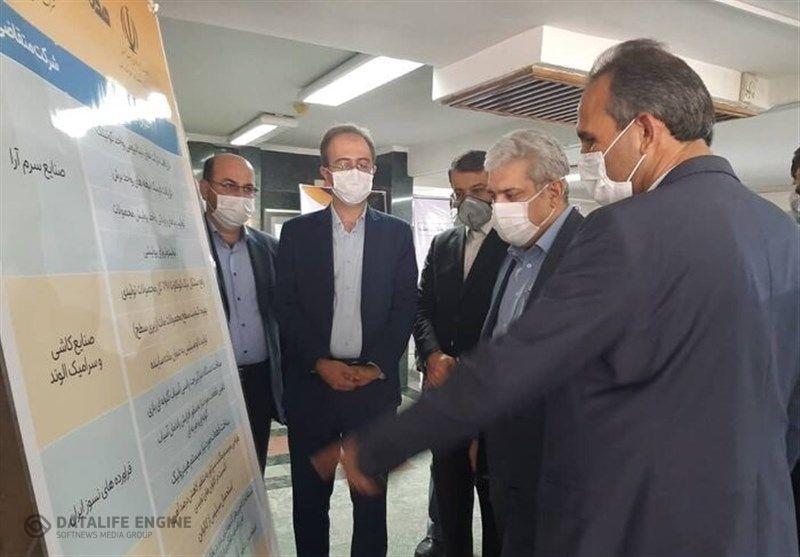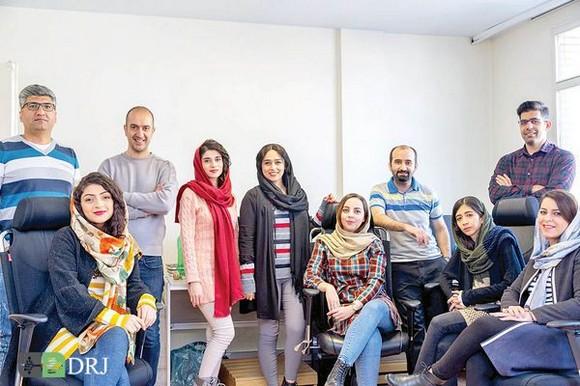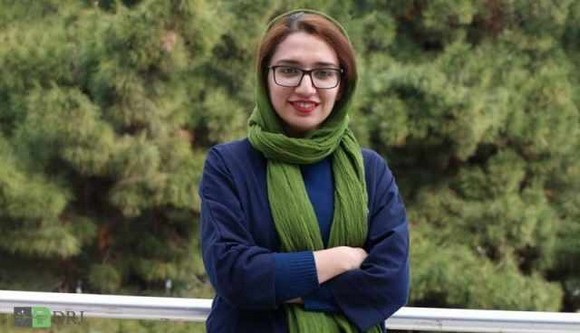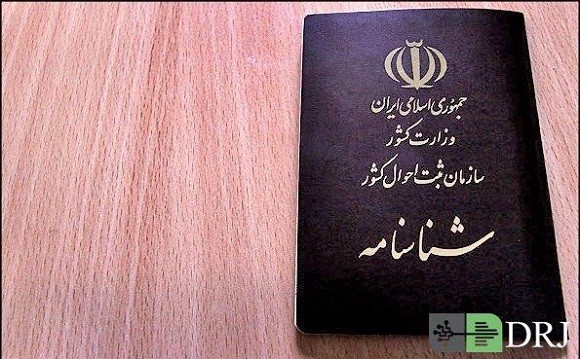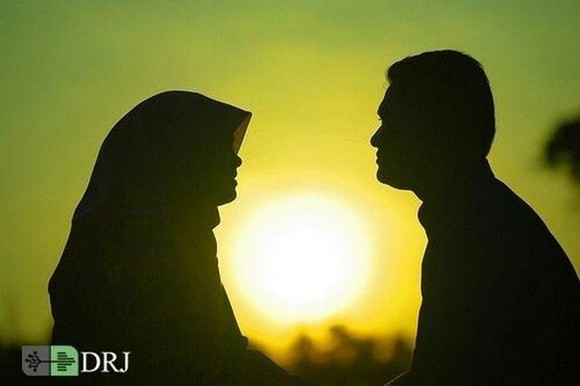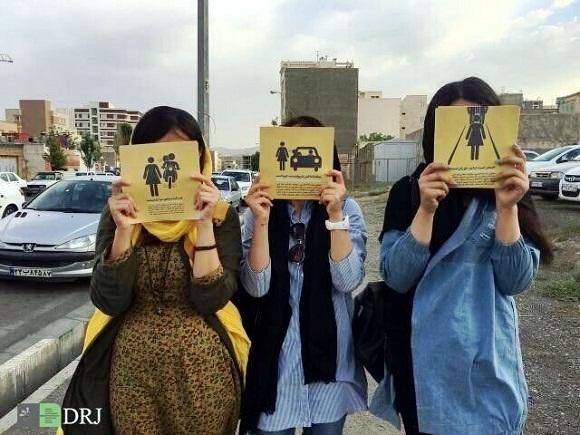Maurice Bucaille
Maurice Bucaille , who worked as chief of the Surgical Clinic , University of Paris , was deeply interested in the correspondences between the teachings of Scripture and modern secular knowledge . After a decade-long study , Dr . Maurice Bucaille addressed the French Academy of Medicine in 1976 concerning the existence in the Qur’an of certain statements on physiology and reproduction . He reasoned that: " . . . our knowledge of these disciplines is such , that it is impossible to explain how a text produced at the time of the Qur’an could have contained ideas that have only been discovered in modern times…"
That year , Maurice Bucaille published La Bible , le Coran et la science . The book proved to be enormously popular and has been translated into languages spoken throughout the Muslim world . Enthusiasts consider this work as one of the most important ever on Islam and science discourse . The opponents of this approach label this trend as "Bucaillism" . The book analyzes the scriptures in the light of modern scientific knowledge and identifies contradictions between established scientific facts and scriptures . The author analyzes creationism vs . evolution , astronomy , the conception in the womb , separation of water in subterranean oceanic rivers , and other issues , and attempts to document each point he makes . The general contents of The Bible , the Qur’an and Science are:
The Old Testament – examines the origins of the Bible , describes the books of the Old Testament , highlights evidence of science in the Old Testament ( i . e . creation of the world , date of creation and appearance of mankind , the flood ) , critically examines scientific error .
The Gospels – explores sources and history of the text of the gospels , genealogy of Jesus , modern science and the gospels , contradictions and improbabilities in descriptions in the gospels .
The Qur’an and Modern Science – examines the authenticity of the Qur’an , identifies scientific phenomena described in the Qur’an ( creation of heavens and earth , astronomy , earth science , water cycle , animal and plant kingdoms , human reproduction ) .
Qur’anic and Biblical Narrations – draws parallels between the Qur’anic and Bibilical texts and modern knowledge , dealing specifically with the narrations of the Flood and the Exodus
Qur’an , Hadiths and Modern Science
General Conclusions
List of Quotations from the Qur’an
Bucaille’s other work , "Mummies of the Pharaohs - Modern Medical Investigations" ( St . Martins Press , 1990 ) , won a History Prize from the Académie Française and another prize from the French National Academy of Medicine .
During the last three decades of the twentieth century , a number of social , political and economic factors contributed to the spread and popularity of such literature . Various state-sponsored institutions have organized conferences and seminars in which scientists link specific verses of the Qur’an to specific data and theories of modern science to prove ( i ) that the Qur’an is really a book of God , revealed to the Prophet of Islam because such specific scientific information was unknown during his life and ( ii ) that the Qur’an contains all scientific knowledge and it is for science and scientists to discover this knowledge . This approach is encumbered with an emotional , psychological , even political , baggage and has been opposed and challenged by serious scholarship . But its mass popularity remains uncontestable . This has given rise to a great deal of apologetic literature , including hundreds of websites which attempt to prove that the Qur’an is , in fact , the word of God because it contains scientific theories and facts which modern science has only recently discovered .
Bibliography:
The Bible , The Qur’an and Science , Translated from the French by Alastair D . Pannell and the author , ( Islamic Call Society , Tripoli , 1976 )
What is the Origin of Man ( Seghers , 1988 )
The Qur’an and Modern Science n . d .
Réflexions sur le Coran by Mohamed Talbi & Maurice Bucaille ( Seghers , 1989 )
Mummies of the Pharaohs - Modern Medical Investigations ( St . Martins Press , 1990 )
Moses and Pharaoh , the Hebrews in Egypt , ( NTT Mediascope Inc , 1994 )
Book Review by Muhammad al-Ghazali in Islamic Studies , vol . 40 , no . 2 . Summer 2001
Maurice Bucaille . The Bible , The Qur’an and Science: The Holy Scriptures Examined in the Light of Modern Knowledge . Translated from the French by Alastair D . Pannell and the author . Tripoli: Islamic Call Society , n . d . Pp . 252 . Paperback edition .
This work appeared some twenty-five years ago in its original French version . Later it was translated into English and in a short time earned a wide readership of enthusiastic admirers . It was also very soon translated into several other mainly Muslim languages including Arabic , Persian , Turkish , Urdu , Malay and some other languages of the east and the west . The writer is a well-known medical practitioner of Paris . During the last days of his life , the late King Faisal of Saudi Arabia ( d . 1395/1975 ) was under his treatment and for that purpose he was frequently invited to stay in Saudi Arabia for long periods . The present reviewer had the chance to meet the author in September 1980 in Algiers in an International Seminar on Islamic Thought .
The background in which Dr . Maurice Bucaille was prompted to write the book predates his contact with King Faisal of Saudi Arabia . Prior to that he happened to visit Cairo in connection with an official task assigned to a team of experts . They were invited by the Government of Egypt to help preserve the famous mummy of Ramses II ( R . 1304-1237 BC ) . They were asked to advise the curators of the Cairo Museum on the latest techniques of protecting this valuable treasure of history from decay . In the course of his work , Dr . Bucaille learnt from some Egyptian acquaintances that the Qur’an , while referring to the incident of the drowning of Pharaoh in the ocean , records the fact that his body will be preserved "to be a sign for those who come later" . ( 10: 92 ) . Dr . Bucaille was struck by this information supplied by his Egyptian friend for he knew that before the 19th century , when some British archaeologists had discovered the mummy of Ramses II by deciphering the inscriptions of the old Phoenician language , nobody in the whole world knew about the existence of this mummy .
This made Dr . Bucaille curious to find out the exact wording of the Qur’an on this subject and to explore the other contents of the Qur’an that might have any bearing on the themes of modern science . He was also intrigued by the fact that despite a detailed description of this story in the Old Testament , there is no mention there of the preservation of the body of Ramses . This observation led him to carefully compare the Bible and the Qur’an from the point of view of modern scientific knowledge .
Dr . Bucaille was , however , not prepared to be satisfied with the translated version of the Qur’an which was then available to him . At that time , however , he was completely innocent of any knowledge of Arabic . Soon thereafter , he happened to be invited by late King Faisal and struck a personal friendship with him . This liaison with King Faisal and sojourn in Saudi Arabia afforded him an opportunity to know more about Islam through his discussions with the late king who also helped him learn the Arabic language ( p . 126 ) . Dr . Bucaille thereafter seriously devoted his time and attention to learning Arabic so as to be able to study the Qur’an and to satisfy his scientist’s curiosity about its contents . Prior to this , thanks to his upbringing as a Christian , he had studied the Bible and other scriptures and had also examined their contents from a scientist’s viewpoint .
The Bible , The Qur’an and Science is thus an outcome of a long and sustained effort of the author . In a significant sense , it represents the sum-total of his life-long investigation about science and scriptures and their mutual relationship . His thorough understanding of the Biblical lore in its historical evolutionary background provided him with a firm grounding to proceed with the scientific evaluation of the scriptures . In his introduction to this work , Dr . Bucaille deplores the negative and hostile attitude of the Christian West which has been portraying Islam and the Muslims as a fanatic force of cultural retrogression in history .
The author , however , notes with a degree of optimism that the trend of the past prejudice of Christians toward Islam is now changing for the better . The most prominent portent of this new trend , according to him , is visible in the improving official attitude of the Roman Catholic Church toward Islam and its recently growing interest in the Muslim-Christian dialogue . He refers in this regard to the document issued by the Vatican wherein it has deplored the old prejudices against Islam and has recognized the need for an honest and objective approach to its understanding . He sees his own work as an endeavor to project a positive , honest and objective image of Islam through a scientific understanding of the scripture of Muslims . This understanding , in his view , could be arrived at by recognizing the Divine origin of the Qur’an , of which an overwhelming internal evidence is available in the Qur’an itself . At the same time , he also shows readiness to admit any flaw in the Biblical texts that might show any apparent inconsistency with the findings of modern scientific knowledge . In this way , the author hopes to atone for the past excesses committed by the Christians in their prejudiced projection of Muslims and their religion . This honesty of approach , this readiness to undertake an objective study of each other’s religion would , in the author’s opinion , pave the way for a better understanding between the three scriptural religions Islam , Christianity and Judaism . The author , however , does not discuss the position of the Jewish scholars regarding the scriptures and their views about the scriptures of Christianity or Islam .
Since the author does not claim to be a scholar of Islam , he should be allowed the occasional oversight and lack of proper appreciation of Muslim religious tradition in its fullness . He shows this lack of understanding on several occasions in his book . To cite just one instance: "The notion that science and religion are incompatible is as equally prevalent in countries under Judeo-Christian influence as in the world of Islam especially in scientific circles" ( p . 14 ) .
To include Islam in the sweep of this statement is obviously devoid of any foundation . Historically , there did not come a moment in the life of Muslim community when even the most rigid advocates of orthodoxy contemplated any inconsistency between Islam and science . In fact when the author develops his main thesis in this book that the Islamic scripture shows no incongruence with the axioms of empirical knowledge , he is merely stating the obvious , for the essential harmony between reason and revelation is a self-evident truth which has always been affirmed by the Muslims throughout their history . Men like Abu Hamid Muhammad al-Ghazali ( d . 505/111 ) , Fakhr al-Din al-Razi ( d . 606/1210 ) , Ibn Timiyyah ( d . 728/1328 ) and Ibn Rushd ( d . 551/1157 ) were among the first exponents of Islam who wrote extensively to establish this harmony . Another error committed by the author is to equate hadith with the gospels in as much as the former were authored by men who did not witness the events they related , just as had been the case with the authors of the Gospels ( p . 15 ) . The author has either ignored or did not find the opportunity to educate himself in the science of Hadith that developed an elaborate system of judging the authenticity of ahadith by tracing relevant historical data and examining related biographical information to ascertain the uninterrupted chain of narrators concerning every individual hadith . It is through this elaborate mechanism that each hadith is traced to its original source . And the original source is nothing short of an eyewitness the incident reported in the hadith . In the absence of the chain traceable to the eyewitness , a report loses its value in terms of authenticity .
On another occasion , the author says " . . . science and reason should always be referred to , if necessary , to deprive them ( i . e . ahadith ) of their authenticity" . This statement could partly have some weight , but gives the impression that no other criterion is available to assess the veracity ahadith .
Notwithstanding such lapses here and there the main contention of the author that no inconsistency with the established facts of science was discernible in the Qur’an has been elaborately discussed and clearly articulated throughout the book . This consistency between the Qur’an and findings of human reason and empirical observation , however , is not something unnoticed in the scholarship of the Qur’an prior to Dr . Bucaille . We have already alluded to the fact that the essential harmony between reason and revelation ( ‘aql and naql ) had been postulated much earlier by Muslim scholars such as al-Ghazali , al-Razi , Ibn Taymiyyah and Ibn Rushd . And this theological position had been more or less consistently held by all the mainstream scholars of Islam . In the Indian subcontinent the most celebrate exponents of Islam starting from Shaykh Ahmad Sirhindi ( d . 1034/1624 ) and Shah Wali Allah ( d . 1176/1762 ) to Maulana Fazl-i Haq Khayrabadi ( d . 1278/1861 ) , Maulina Muhammad Qasim Nanautvi ( d . 1297/1880 ) , Maulani Ashraf ‘Ali Thanvi ( d . 1362/1943 ) , and Muhammad Iqbal ( d . 1357/1938 ) subscribed to this view and contributed to its substantiation in one way or the other .
This much is quite well known in the academic circles of the Muslim world and there is little basis for questioning this axiomatic truth about the Qur’an . The Qur’an itself urges its readers to use their intellectual faculties to reflect and deliberate over the vast phenomena of nature - both nature within and nature without - to strengthen their conviction about the cardinal truth of tawhid expressed in the Revelation . A person of sound mind and healthy instincts will find overwhelming evidence of this cardinal Truth manifested in the entire phenomena of this cosmos , as it is articulated in the express Divine relation namely the Qur’an .
The problem , however , arises with regard to the other part of his thesis , namely , that the Qur’an contains elements of scientific knowledge which were recovered by man centuries after its revelation . However , even in this respect , Dr . Bucaille is not the first to see in the Qur’an such a foretelling of scientific facts . For with the increasing contacts between Muslims and Westerners , the comparison between the Qur’anic descriptions of natural phenomena and the discoveries of science received the attention of many Muslim scholars . During the nineteenth century , this trend became more and more visible in the studies of the Qur’an especially among those writers who were not specialized in tafsir . Those who were enthused by the apparent confirmation of independent human discoveries of this phenomenal world of time and space , by the statements of the Qur’an pertaining to them or vice versa had been mostly scientists rather than exegetes . We also find that the mainstream scholars of the Qur’an have either not taken this aspect of the Qur’an’s commentary too seriously or even at times addressed a word of caution against over-stretched interpretation of Qur’anic verses to fix or fit their meaning within the reductionist constraints of modern scientific knowledge .
In this respect it would be profitable to quote here a long passage by one of the most leading scholars of the Muslim tradition in India , Maulana Ashraf ‘Ali Thanvi . He was among those exegetes who issued a warning in the most clear and explicit terms that the Qur’anic text should not be subjected to temporal and mutable scientific ideas . Thus we find that the attempts of interpreting the Qur’an in the light of science went side by side with this warning . Maulana Ashraf ‘Ali Thanvi , in his book , al-Intibahat al-Mufidah ‘an al-Ishhtibahat al-Jadidah , had the following to say while warning the students of the Qur’an against subjecting its verses to scientific interpretation:
. . . The second error [concerning the Qur’an] is the attempt to show that the Qur’an contains themes of science as one comes across nowadays in many journals and reviews . As soon as some people hear or see any new finding of science by the Europeans , they try in one way or the other to posit such finding as a connotation of some verse of the Qur’an . They reckon this as a great service to Islam , a cause of pride for the Qur’an , and a sign of their own ingenuity . Many an educated person is found involved in this error . One aspect of their error is that they think that it was a proof of Qur’an’s perfection to contain themes of science . The source of this error is that their attention was diverted from the real subject-matter of the Qur’an . Since the Qur’an essentially contains a spiritual healing , its being free from these themes does not divest this Book of its inherent value . Rather than that , this fact proves its perfectness in a way . However , if by the demands of this spiritual treatment , a part of these themes finds mention in the Qur’an , then this is also meant to fulfil the real purpose of this Book . However , going by the principle: ‘the necessary is measurable by the degree of the necessity’ , this part will not be mentioned beyond the limits of necessity . For instance to establish tawhid , which is the greatest source of the guidance of spirits , the easiest and nearest means is the analogy of creatures . Occasional mention , therefore , is to be found of the creation of the skies , earth , man and animal . Since this did not warrant any detail , it was not mentioned . In short , the themes of science are not among the aims of the Qur’an per se . However , by the necessity of supporting the aim , whatever is mentioned here in the form of a manifest and clear connotation is certainly and evidently true . It would be wrong to believe otherwise by some other reasoning . If any argument is against it , then that will be assailable after investigation or would give rise to a conflict . Nevertheless , it is possible that the connotation of the verse is not explicit and manifest and there is some other valid argument which is admissible against it , then the text of the Qur’an could be interpreted in such a way that its direct connotation is abandoned in favour of the other interpretation supported by a valid argument .
He goes on to say: . . . the second error , as indicated above , is that such issues are not the objects per se of the Qur’an , but these are merely auxiliaries for the object and it is obvious that the argument should contain premises acceptable to the listener or these should be self-evident or could be proved to him by reasoning , otherwise the argument would fail to achieve its purpose in bringing home the point to the listener . When this much is evident , then it should not escape the mind that if these modern discoveries are contented to be the connotations of the Qur’an , then certainly the Arab people who were the first addresses of the Qur’an , were not aware of these discoveries . This leads , as a corollary , to the conclusion that the whole argument is founded on unacceptable , unobvious and unknown premises . Hence , the argument becomes void on this very basis . And this kind of reasoning would seriously injure the mode of Qur’anic argument . The third error is that these findings [of science] also prove wrong at times . Therefore , if these were designated as connotations of the Qur’an , and these findings were disproved at some later period , and the acceptance of the followers of Islam was already registered in favour of this particular purport of the Qur’an , then any ordinary atheist would easily be able to falsify the Qur’an and show that this particular content of the Qur’an was untrue . And the falsity of a part would lead to the falsity of the whole . How difficult then would be our position! If someone suggests , as contended by some people , that the greatness of the Qur’an lies in the ability of its words to be applicable to the themes of every age , then this would mean that no connotation of the Qur’an is reliable for its words would always contain the possibility of an opposite connotation .
He finally rounds off the discussion by saying:
The fourth flaw in this approach is that it is against the dignity of the Muslims that the scholars of Europe should claim that the Qur’an which was revealed long time ago , yet its contents were not comprehended even by the Prophet ( peace be on him ) himself , and you owe it to us that you have understood its tafsir because of us , then what is going to be our answer? ( ‘Ali Thanvi Maulana Ashraf , Islam awr "Aqliyyat , ed . , Muhammad Mustafa Bijnauri , Lahore: Idarah Islamyat , 1994 , 403-421 ) .
In respect of falling back on the independent findings of human knowledge for interpreting the text of the Qur’an , there have been on the whole two kinds of approaches among Muslims . While one group of writers , who are mostly non-specialists in tafsir , enthusiastically opened the door of the liberal use of the scientific material to assign precise meanings to Qur’anic verses with a view to prove its miraculous nature and Divine origin , the other group almost totally closed this door . The first group maintains that the miraculous ness of the Qur’an is not a fixed idea . Rather , in their opinion , the Qur’an is a living miracle in as much as it continues to supply fresh evidence of its Divine origin in the unfolding of endless empirical exploits of man . The other group insists that the Qur’an , in order to be valid for all times and climes , must be exclusively concerned with such spiritual and moral issues of eternal validity that will never lose their relevance for human felicity and bliss .
The above-cited passage of Maulana Ashraf ‘Ali Thanvi , however , seems to contain elements of a possible third and more moderate view: that although the Qur’an is not concerned with issues of science , per se , yet for the sake of pointing to a supportive argument to establish its contentions , it may contain reference to such signs as lend further strength to those contentions .
It is , however , for the scholars of the Qur’an who are well-versed in tafsir to address themselves earnestly to this issue , for it involves serious questions that need to be answered before taking a definite position in this regard . The central issue involved in the whole debate is: to what extent , and by what standards , can knowledge derived from sources external to the Qur’an be employed to interpret and apply the Divine words to space-time situations? It is evident that this is not an issue that could casually and summarily be settled within the limitations of a brief review or even one monograph or two . In my humble opinion there is a degree of merit in the contentions of both groups identified above . The truth perhaps lies somewhere between the two positions . Allah indeed knows best .


